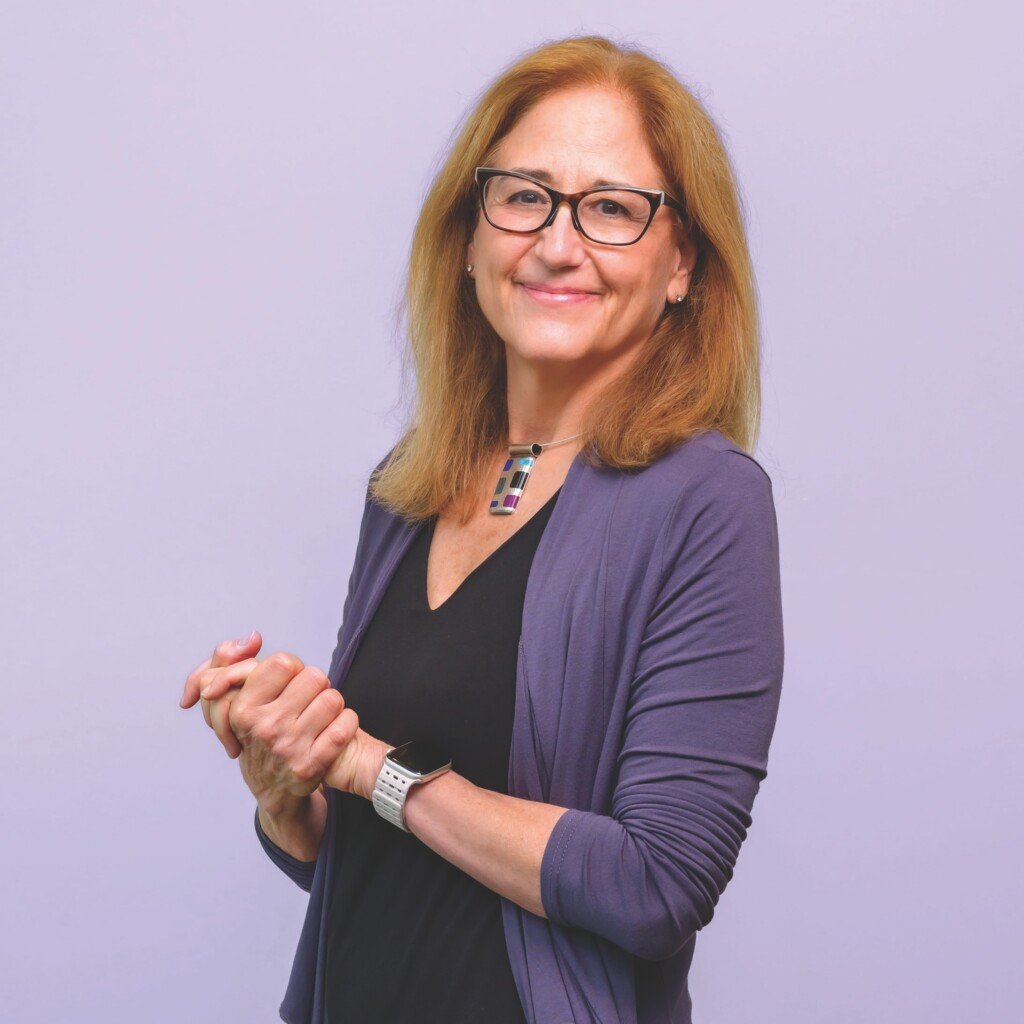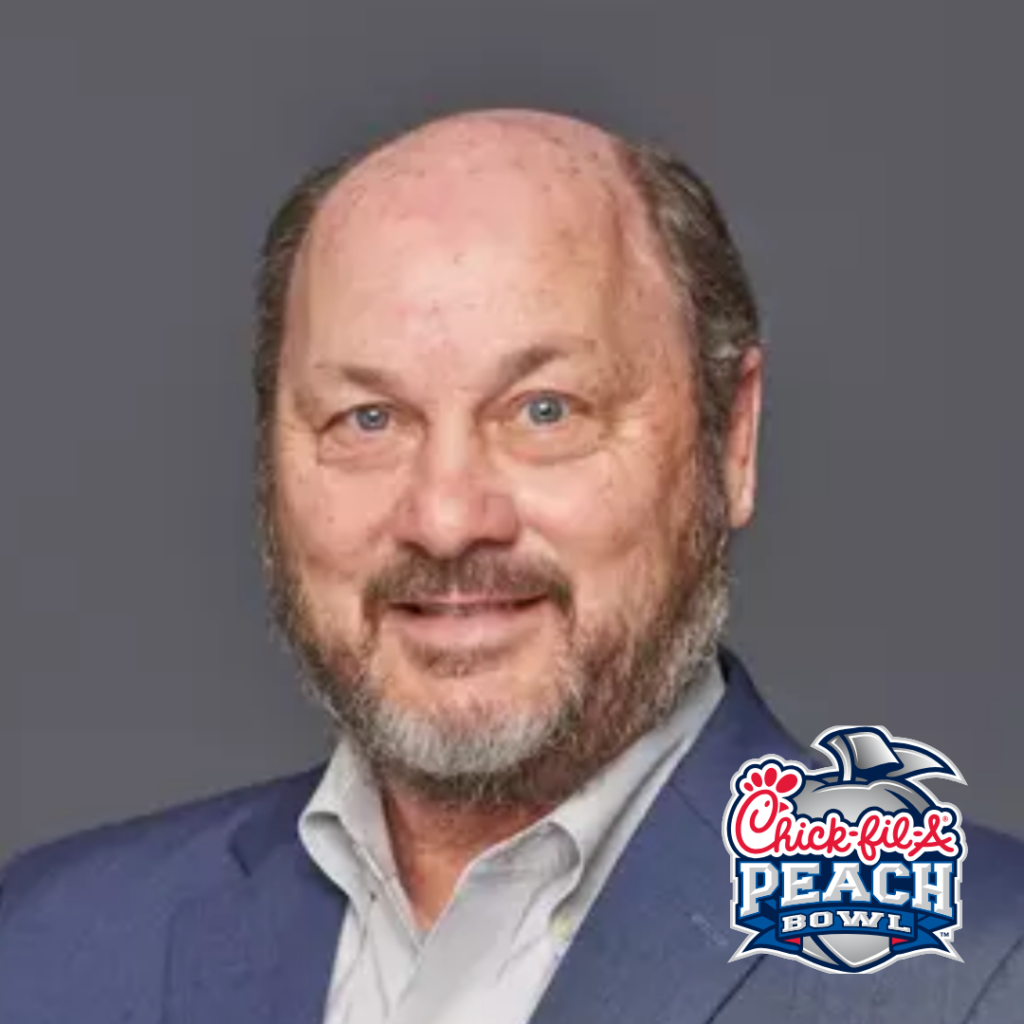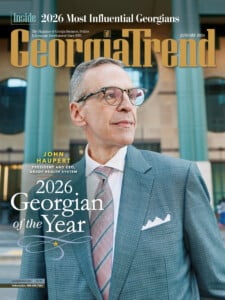Catching up with… Tim Denning
President and CEO, Georgia Research Alliance
Tim Denning became president and CEO of the Georgia Research Alliance (GRA) in November. These are edited highlights from two interviews.
 What’s your elevator speech about GRA?
What’s your elevator speech about GRA?
I try to keep it really simple and say that GRA helps to grow university research and university research-based entrepreneurship. Then I delve a little deeper into how we do that – by recruiting top-notch talent into the universities in Georgia [as Eminent Scholars or Distinguished Investigators], and then empowering them with the equipment, instrumentation and infrastructure they need to turn their ideas into [reality and] move through a commercialization pipeline that can lead to companies being started and growing here in Georgia. Ultimately [that leads to] creating products that help the citizens of Georgia and beyond. So if I’m sitting next to someone on an airplane, here’s what they can take away from that: “You all support research that goes on at these schools and turn it into startups.”
How is GRA funded and supported?
The operations of GRA are supported through private funds; we have fundraising through our board and through generous philanthropists from companies [and] from individuals. The scholars’ program and the startup program are supported through the state as well as the [individual] university. There are two different types of scholars: the Eminent Scholar – these are the top individuals in their field, in the country, if not the world – and then the Distinguished Investigator, [which] would be like the rising stars. For these two types of endowments, half of the funds come from the state and half come from the university foundations.
How are the scholars recruited to Georgia?
We try to do it in a manner aligned with university interests and where the universities want to grow in terms of disciplines, and then align that with the interests and priorities of our [state] government. We want to make sure that it’s a really close alignment and partnership between the state and the universities, and even the business community, ideally.
How does GRA help support workforce development?
There are two main areas: There’s workforce development with the university laboratories … and on the startup side. The scholars usually bring a large research portfolio, [with] grants and contracts, and hire a lot once they get here. The research laboratories can be quite large and employ a large number of people. Then as the technology emerges and a company is formed and starts to grow, the exact same thing starts to happen there. We track these numbers carefully at GRA and they’re quite impressive with the number of jobs created overall through just our scholars, not to mention the others they collaborate and interact with.
Before coming to GRA, you were vice president for research and economic development at Georgia State University. What drew you to this role at GRA?
I’ve been involved with GRA for right around 20 years [as a researcher]. I have a Ph.D. in microbiology and immunology. My first interaction with GRA was [when I was] drawn to the Emory Vaccine Center, directed by Rafi Ahmed, a GRA Eminent Scholar. Then I was recruited to Georgia State by another GRA Eminent Scholar, Jian-Dong Li, who was building the Institute for Biomedical Sciences. That was an exciting opportunity to be involved with GRA and build my own research career and portfolio. And then I was so excited about this opportunity because it allows for leveraging the power of research to have a transformational impact on society.
How does your background influence you as the head of GRA?
[I want to use] my deep understanding of university research to make sure that research is being propelled into innovations that can have real-world impact. There are wonderful success stories [from GRA scholars], but that’s where investment partnerships and collaborations can bear real impact. You almost have to act like a translator, because there’s the language of the researchers and the language of the business community, and there’s the language of the state government. To be able to understand enough about these different entities and act as a common voice so everyone can understand the value as a whole is something that I really want to do.






